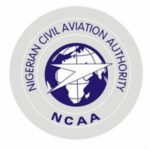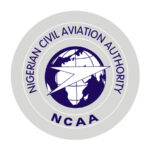Engineer Akin Olateru is the Commissioner and Chief Executive Officer (CEO) of the Accident Investigation Bureau (AIB), the Federal Government agency in charge of investigating air accidents.
In this interview, he speaks on the proposed amendment of the AIB Act to make it a multi-modal investigation agency covering air, marine and railway.
What is the imperative of the AIB Act amendment?
The bill proposes to expand the scope of AIB and make it multi-modal. Here, we investigate accidents and serious incidents in line with Section 29 of the Civil Aviation Act 2006 in line with Annex 13 to the Chicago Convention, and we are also trying to make it in line with global best practice.
What we are seeking is what is being practiced in several countries today; I mean going multi-modal, having a single accident investigation body. A lot of countries have gone multi-modal, and the reason is mainly, you must separate investigation activities from the regulatory authorities and service providers.
In every mode of transportation, you have the regulator. In air transportation in Nigeria, the regulator is the Nigerian Civil Aviation Authority (NCAA); then we have the service providers like Federal Airports Authority of Nigeria (FAAN), Nigeria Airspace Management Agency (NAMA), the airlines, ground handling companies, catering companies, etc. Now you have the investigator. So every mode of transportation should have three components. This is in line with most international treaties which Nigeria is signatory to. The basic reason is to have a transparent, independent and objective investigation into any occurrence.
What kind of agency should Nigerians expect?
A vibrant agency of government that is alive to its responsibilities. What you should expect is to have an agency that will investigate all marine, rail and air accidents. It makes sense to bring everything under one roof and make it independent; separating it from the regulators and service providers.
Look at the railway, the Nigerian Railway Corporation (NRC) is the regulator, service provider and investigator. You cannot have an objective investigation if anything goes wrong in that kind of pairing; they need to be separated. This is one of the reasons why in the air, we have been extremely successful. We have one of the best safety records in the world.
With the staff strength, how would AIB cover the other transport modes?
The marine branch accident investigation in the UK has only 19 staff. Out of these, 17 are investigators. It is not about numbers, it is about efficiency. At the moment in AIB, we are set up for air investigation, but if you understand accident investigation in general; whether it is marine or rail, it is the same process. When you have an air crash, you need an investigator who is a pilot and an investigator who is an aircraft engineer to be part of your team because their experiences matter greatly to the investigation.
How has the bureau performed 31 years after establishment?
Gone are the days when aircraft were dropping off the sky and Nigerians were just dying. 2005 was the worst year in the history of aviation accidents in Nigeria. This was what gave birth to the AIB, because international bodies were invited to Nigeria to help and one of their recommendations was for the country to have an independent accident investigation body to actually investigate these occurrences. The by-product of accident investigation is safety recommendations. We issue safety recommendations to let people know what happened, how it happened and what can be done to prevent recurrence. The NCAA is there to enforce safety recommendations and that is why over the years serious air incidents have been on the decline.
AIB has issued 196 safety recommendations, what is the status of their implementation?
So far we did the last review in 2019 and we have 65 per cent compliance. A team has been set up by NCAA and AIB to look into the current implementation. The team is working; it has started meeting. COVID-19 slowed us down a little bit, but work is ongoing. For the manufacturers, we have 100 per cent implementation. For instance, the Sikorsky S-76 – the Bristow aircraft that crashed – there was a safety recommendation to the manufacturer which was implemented straight away and that has prevented other crashes of that same type of helicopter because there was a default in some mechanical equipment which the manufacturer had to issue a service bulletin to all operators to fix.
Some airlines had disputed your reports. What do you say about that?
We are here to support all service providers and to work with the regulator; which is the NCAA. It is not part of our mandate to bring down anybody. We must be objective, transparent and do things in accordance with all our guiding principles and regulations, and that is what we have been doing under my watch. We make sure we put it out there as it is. We don’t mince words and we don’t amend anything, and that is what accident investigation is all about.
The aviation acts for NCAA, FAAN, NAMA and AIB are being reviewed, what will be the outcome?
You have to give credit to the current administration. I will tell you one of the reasons. The Nigeria College of Aviation Technology (NCAT) Act was last reviewed in 1965. We are in 2020. How can you still be operating on a bill or act that is 55 years old? So we have to give it to the current administration in pushing for these amendments. It will definitely realign all the agencies to the current trend to let them perform optimally to meet the world, where the world is now.

 Join Daily Trust WhatsApp Community For Quick Access To News and Happenings Around You.
Join Daily Trust WhatsApp Community For Quick Access To News and Happenings Around You.

